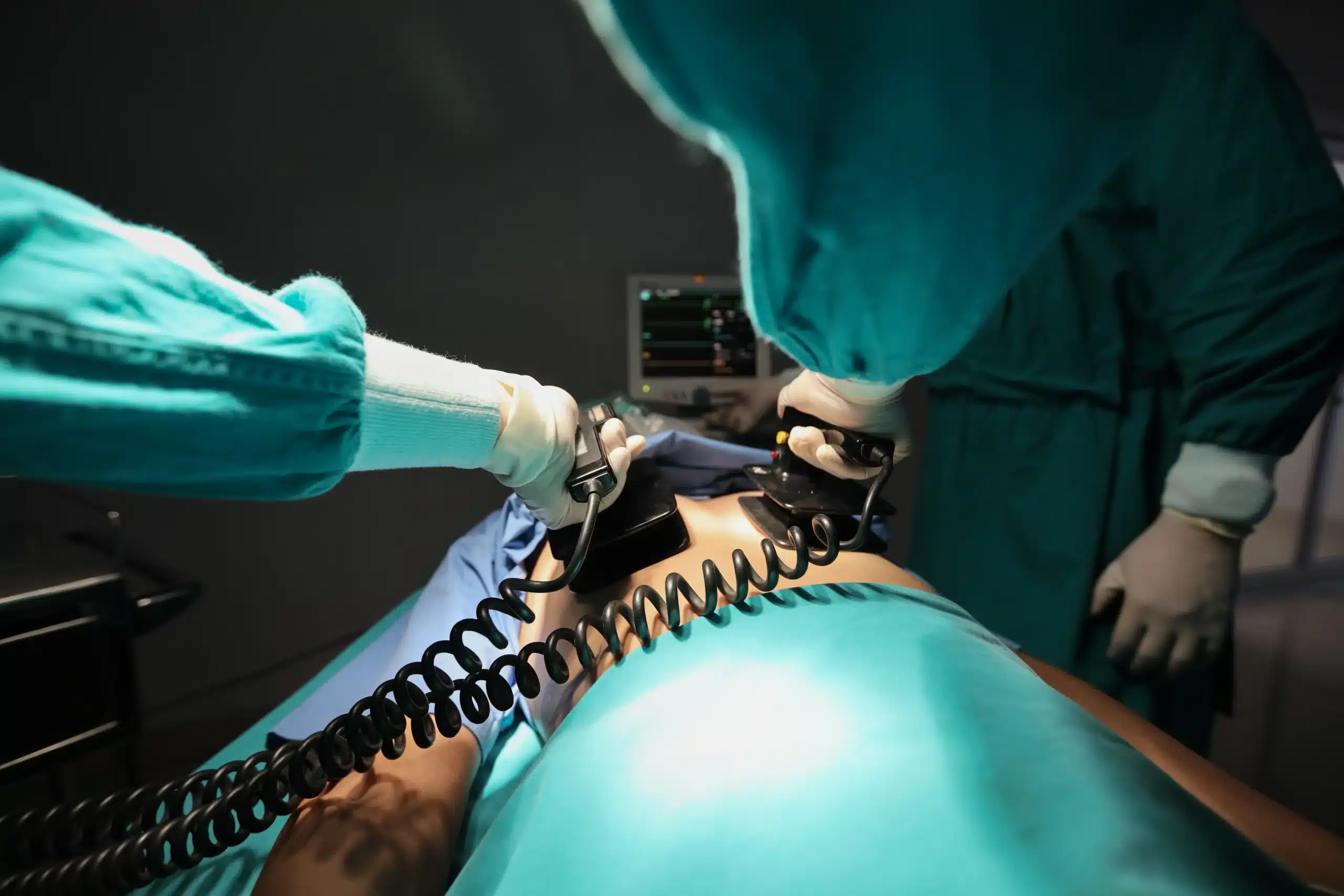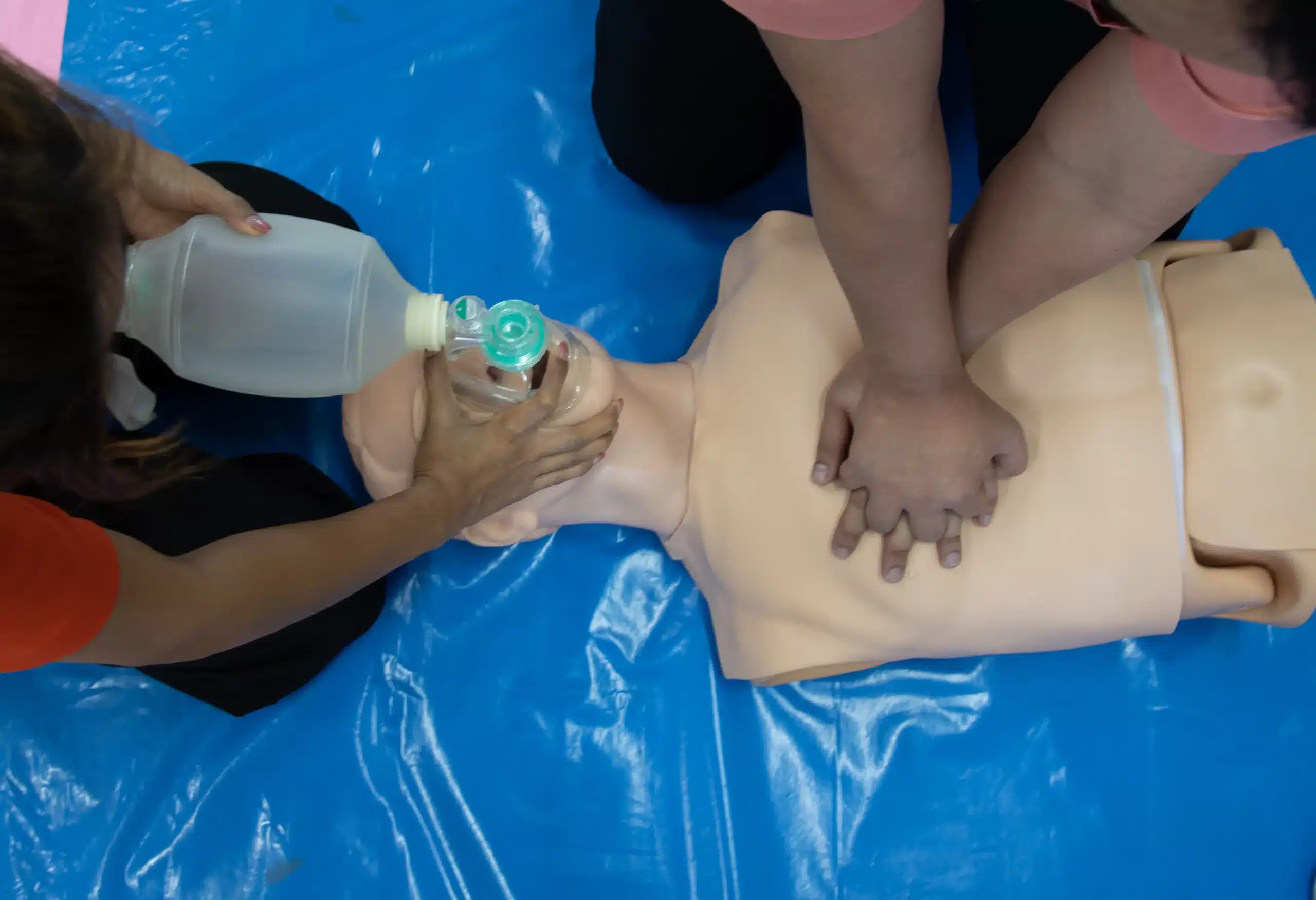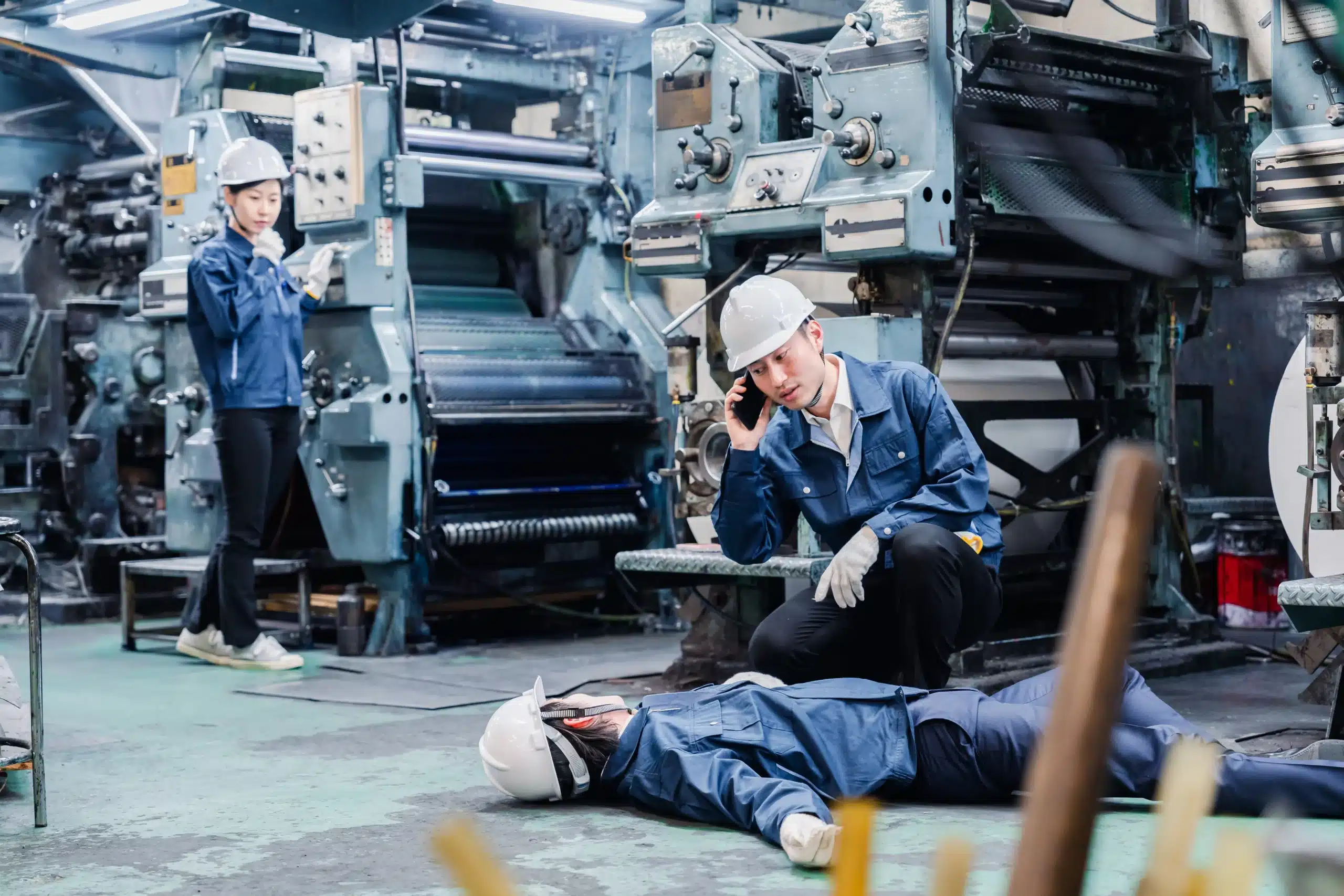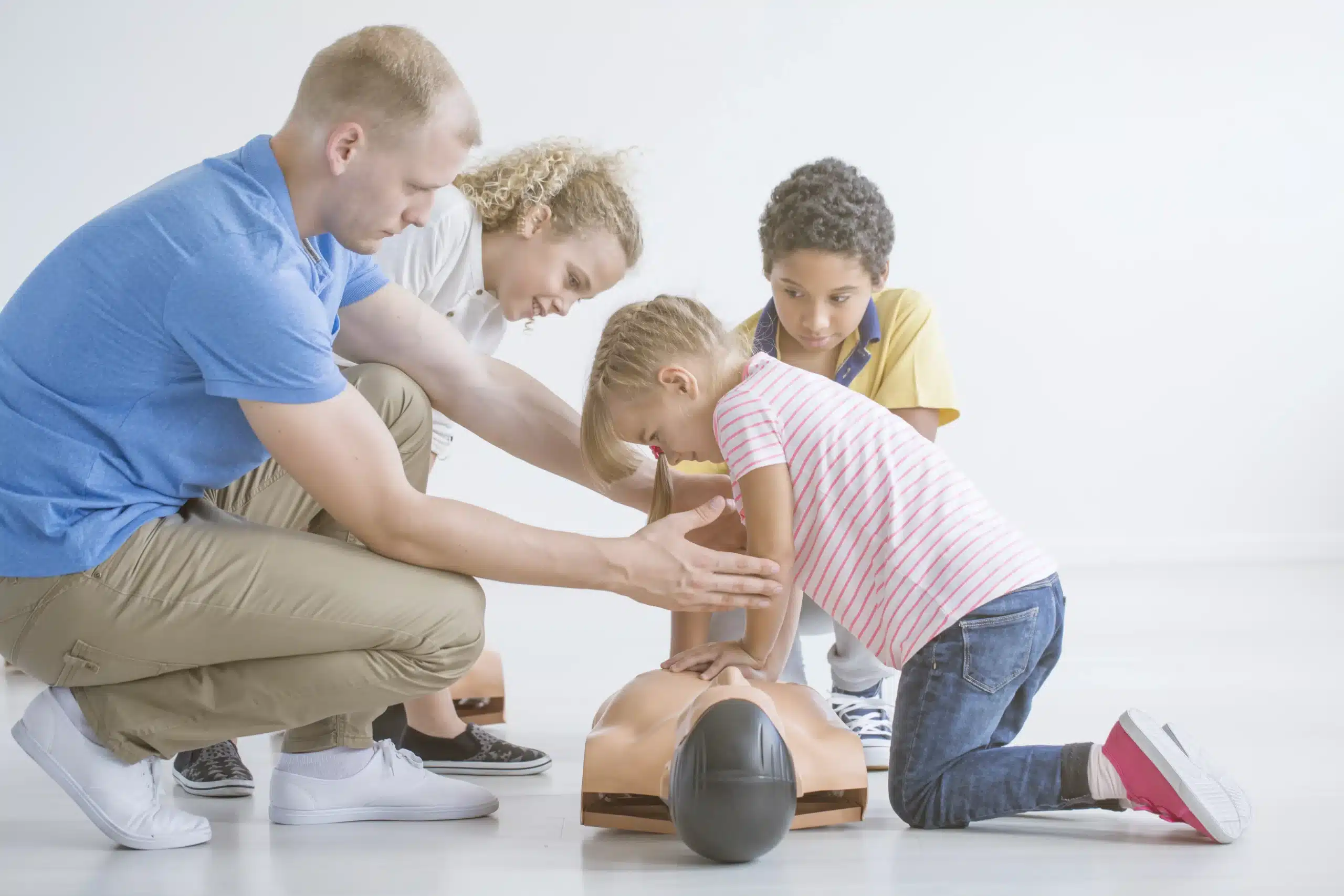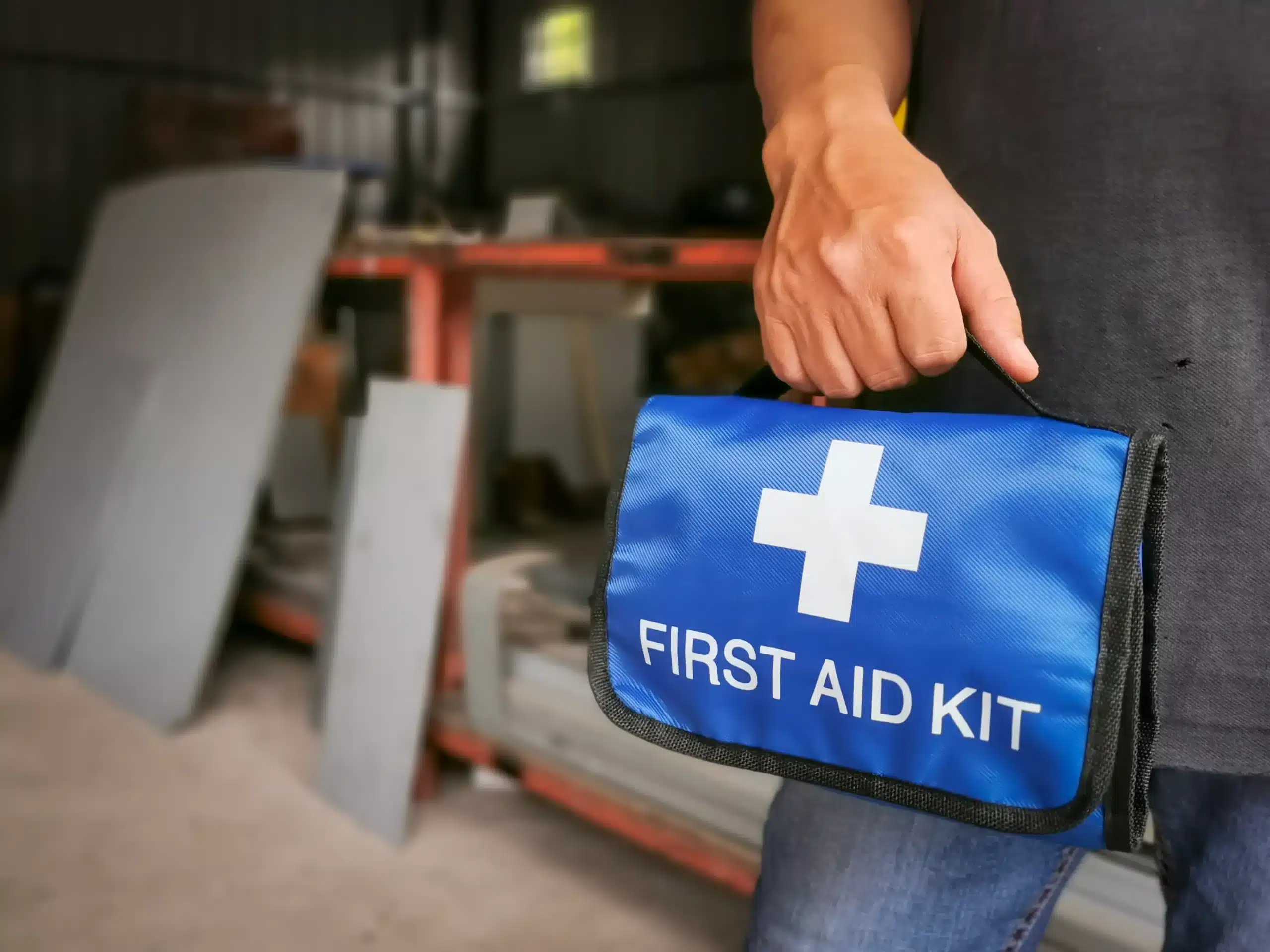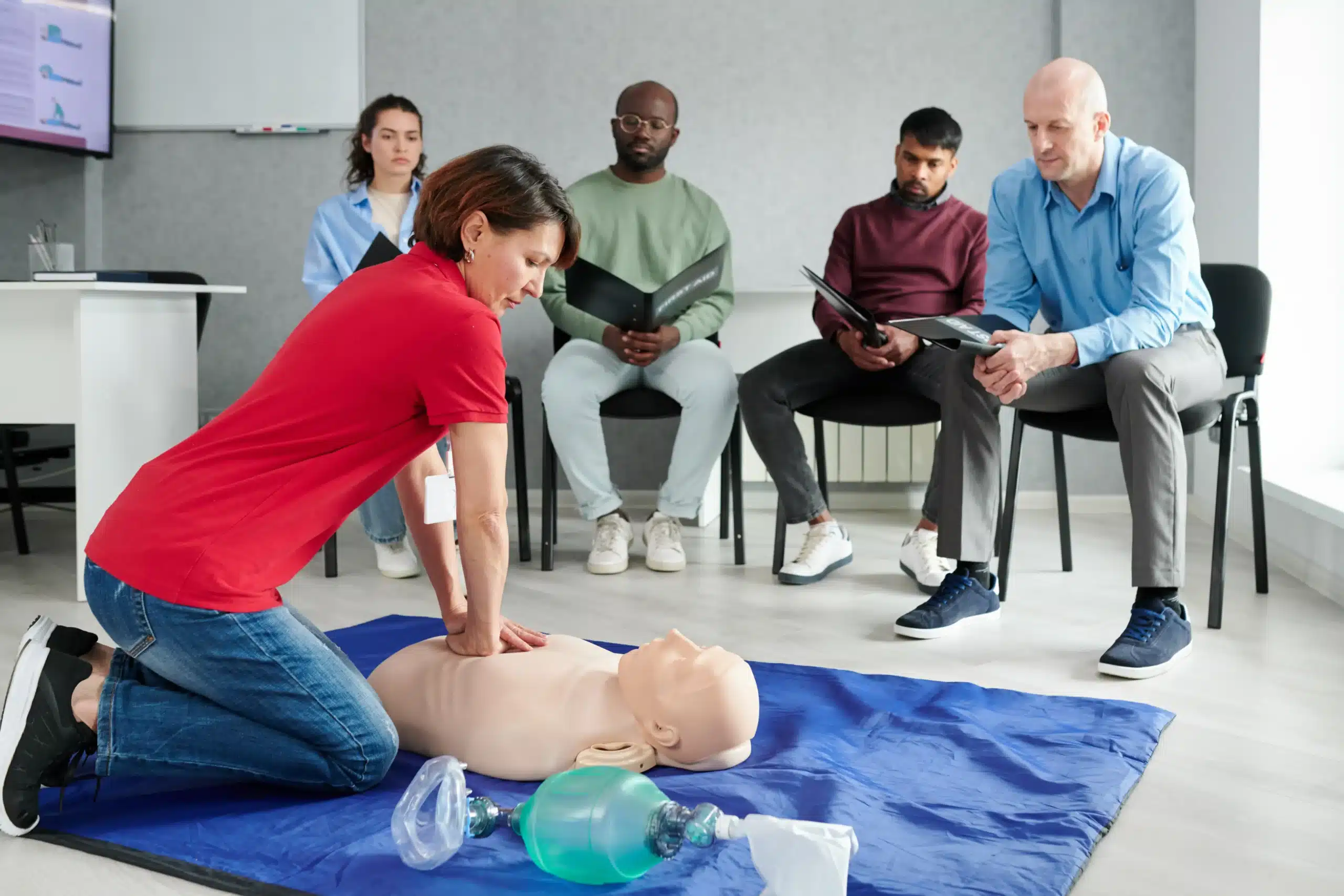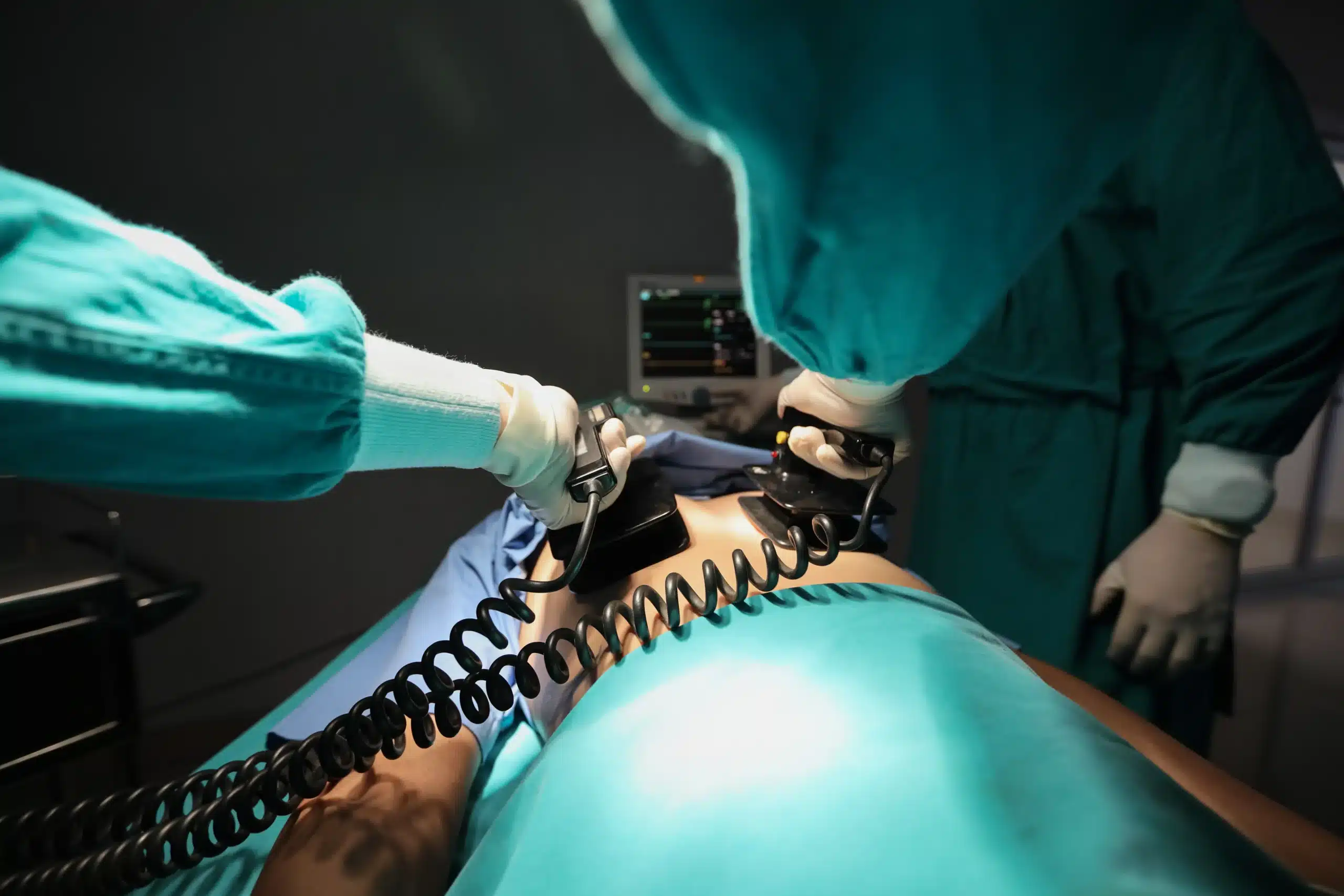Knowing how to respond in a medical emergency can make all the difference. If you’re looking for “CPR courses near me,” you’ve come to the right place. This guide provides a comprehensive overview of CPR training, from understanding the different course types to finding a reputable provider. We’ll cover everything from BLS for healthcare providers to Heartsaver CPR/AED for the general public, and even specialized courses like Pediatric CPR. We’ll also discuss the cost and time commitment involved, the benefits of hands-on training, and how to maintain your skills after becoming certified. Plus, we’ll address common misconceptions about CPR and highlight the importance of choosing a quality provider like Safety Training Seminars, known for its affordable prices and convenient locations in Sunnyvale, Santa Clara, and San Jose.
Key Takeaways
- CPR training is for everyone: Learning CPR, regardless of your background, equips you to respond to medical emergencies and potentially save a life. Explore the various CPR course options available to find one that suits your needs.
- Find a reputable CPR provider: Choose a training provider accredited by a recognized organization like the AHA or ARC. Ensure the instructors are qualified and the course offers comprehensive resources to support your learning.
- Stay current with CPR guidelines and best practices: Regularly review CPR techniques and refresh your knowledge to maintain your skills and confidence. Consider recertification courses to stay up-to-date with any changes in guidelines.
What are CPR Courses and Why are They Important?
CPR courses teach you the lifesaving skills needed to respond to medical emergencies when someone’s breathing or heartbeat stops. CPR, which stands for Cardiopulmonary Resuscitation, combines chest compressions and rescue breaths to keep oxygenated blood flowing to the brain and other vital organs. Learning CPR empowers you to provide immediate care until professional medical help arrives, significantly increasing the chances of survival for someone experiencing cardiac arrest. The American Heart Association (AHA) recommends that everyone learn CPR, as it can truly make a difference in a life-or-death situation. CPR training is accessible to everyone, regardless of background.
CPR courses cover essential skills, including chest compressions, rescue breaths, and how to use an Automated External Defibrillator (AED). These skills are critical in emergencies, giving you the confidence to act quickly and effectively. Learning CPR builds confidence and equips you to handle these high-pressure situations. Knowing you can potentially save a life brings peace of mind and prepares you to be a valuable first responder. For more detailed information on CPR training in Sunnyvale, check out our CPR Certification Guide. We also offer a variety of courses, including BLS and ACLS, designed for healthcare providers and other professionals. If you’re looking for cost-effective options, our group discounts make getting certified even easier.
CPR Course Types Near You
Knowing which CPR course fits your needs can feel overwhelming with so many options. This section breaks down common CPR certifications, helping you choose the right one. Whether you’re a healthcare professional, a childcare provider, or simply want to be prepared for emergencies, there’s a course for you.
BLS for Healthcare Providers
The Basic Life Support (BLS) for Healthcare Providers course equips medical professionals with the skills to respond to life-threatening emergencies. This course covers high-quality CPR for adults, children, and infants, along with the effective use of an AED. BLS certification also addresses team dynamics, ventilation techniques, and relief of choking. It’s a crucial certification for anyone working in healthcare, including doctors, nurses, paramedics, and other medical personnel. You can find more information on our BLS course page.
Heartsaver CPR/AED
The Heartsaver CPR/AED course is designed for anyone who wants to learn CPR and how to use an AED. This course is ideal for those who aren’t healthcare providers but still want to be prepared for an emergency. Think teachers, coaches, personal trainers, office workers, and community members. It covers essential life-saving techniques for adults, children, and infants, focusing on core CPR skills and AED operation. The American Red Cross offers a flexible blended learning option, combining online coursework with in-person skills practice. This blended learning approach makes it easier to fit the training into your busy schedule.
Pediatric CPR and First Aid
For those working with children, the Pediatric CPR and First Aid course is essential. This specialized training focuses on the unique needs of infants and children in emergency situations. It covers CPR techniques tailored to different age groups, along with common childhood injuries and illnesses. This course is particularly relevant for childcare providers, teachers, parents, and camp counselors. Contact us to learn more about our group discounts for childcare centers and schools.
ACLS
Advanced Cardiovascular Life Support (ACLS) training builds upon the foundation of BLS. This advanced course is designed for healthcare professionals who manage cardiopulmonary arrest and other cardiovascular emergencies. ACLS certification delves into complex algorithms, pharmacology, and team leadership in critical situations. It’s a vital certification for physicians, nurses, paramedics, and other healthcare providers involved in advanced cardiac life support. Learn more about our ACLS course and how it can enhance your skills.
Find CPR Courses Near You
Finding the right CPR course shouldn’t be a hassle. Whether you prefer hands-on learning or the flexibility of online courses, several options cater to different learning styles and schedules. Here’s how to find CPR training near you:
Local Training Centers
Many organizations offer CPR certification courses in Sunnyvale, including hospitals, community centers, and dedicated training providers. Safety Training Seminars, for example, offers a range of American Heart Association (AHA)-certified courses, including CPR, Basic Life Support (BLS), Advanced Cardiovascular Life Support (ACLS), and Pediatric Advanced Life Support (PALS) right here in Sunnyvale. Check their website for course schedules and registration. In-person training offers hands-on practice and direct interaction with instructors, which can be beneficial for some learners.
Online Course Locators
Online CPR certifications are an increasingly popular option, offering flexibility and convenience. However, it’s crucial to ensure any online CPR certification is valid and issued by a reputable organization accredited by the American Heart Association (AHA) or the American Red Cross (ARC). A quick search can help you find online CPR courses and compare options. The AHA also offers a blended learning CPR/AED course that combines online coursework with an in-person skills session.
Community CPR Training
Look for community-based CPR training opportunities. These can be a great way to learn alongside others in your area, often at a lower cost. Many CPR training providers in Sunnyvale, including Safety Training Seminars, offer group discounts, making it more affordable for groups like teachers, coaches, and community members to learn together. Contact local community centers, schools, or organizations like the Red Cross to inquire about upcoming CPR training events.
Cost and Time Commitment
So, you’re ready to learn CPR—great! Now you’re probably wondering about the cost and how much time you’ll need to commit. Let’s break it down.
Typical Course Prices
CPR course fees vary quite a bit. A basic two-hour CPR and AED course averages around $35 per person. If you’re learning with a group (often a minimum of eight people), you might snag a discount, with prices dropping to about $280 for the entire group. More specialized courses, like the American Heart Association (AHA) Heartsaver® CPR/AED Blended Learning course (which combines online learning with a four-hour, in-person skills session), typically cost around $65 in Sunnyvale. At Safety Training Seminars, we’re committed to offering the lowest prices in Santa Clara County, so check out our group discounts to see how you can save.
Factors Affecting Course Prices
Several things influence the final price tag of a CPR course. The biggest factors are usually the training provider, the course format (online, in-person, or blended learning), and included materials. For example, BLS certification courses can range in price depending on these factors. It’s always a good idea to compare a few options before registering.
CPR Course Duration
The time commitment for CPR training depends on the type of course. A basic CPR class can take as little as two and a half to three hours. Combined CPR and First Aid courses usually run a bit longer. If you’re a healthcare provider needing BLS certification, ACLS, or PALS, expect a longer time commitment due to the advanced nature of these courses. For healthcare professionals needing to renew certifications, our RQI program offers a flexible and efficient way to stay up-to-date.
Certification and Recertification
After you complete your CPR course with Safety Training Seminars, you’ll receive an American Heart Association (AHA) certification card, which is valid for two years. Remember that certifications need to be renewed every two years to keep your skills current and maintain your qualifications. We offer convenient recertification courses to help you stay certified.
In-Person vs. Online CPR: Choose the Right Course
Deciding between in-person and online CPR training depends on your learning style, schedule, and budget. Both options have advantages, and understanding these will help you make the best choice. We’ll also cover blended learning, which combines the best of both worlds.
Benefits of Hands-On Training
In-person CPR training provides a valuable, tactile learning experience. You’ll work directly with a certified instructor who can offer personalized feedback and answer your questions in real time. You’ll also practice on CPR training mannequins, learning the correct hand placement and depth of compressions. This hands-on practice builds muscle memory and confidence, crucial in emergencies. In-person classes also allow you to interact with other students and learn from shared experiences, creating a supportive learning environment.
Advantages of Online Learning
Online CPR certification offers flexibility. You can learn at your own pace, revisiting modules as needed, and fitting the training around your schedule. This is particularly helpful for busy professionals or anyone with limited free time. Online courses are often more affordable, making them accessible for those on a budget. If you’re comfortable learning independently, online learning can be an effective way to acquire CPR knowledge and skills. Choose a reputable provider accredited by the American Heart Association (AHA) or the American Red Cross (ARC) to ensure your certification is valid.
Blended Learning
Blended learning combines online learning with in-person skills sessions. You’ll complete the theoretical coursework online, then attend a shorter, hands-on session to practice your skills with an instructor and receive your certification. This approach offers balance for those who appreciate online learning’s flexibility but also value hands-on training. The AHA’s Heartsaver CPR/AED Blended Learning course is a popular option. Blended learning often costs less than traditional in-person classes while still ensuring you gain practical skills.
What to Expect in Your CPR Course
So, you’ve decided to take a CPR course—fantastic! Knowing what to expect can help you feel prepared and confident. Whether you’re taking a basic CPR course or pursuing advanced certification like ACLS, here’s a glimpse into a typical CPR class experience.
Course Content and Skills
CPR courses cover essential lifesaving skills. You’ll learn how to recognize the signs of a cardiac arrest and other emergencies. Expect to learn techniques for performing chest compressions, giving rescue breaths, and using an automated external defibrillator (AED). Many courses also integrate basic first aid training, covering topics like wound care, choking, and stroke recognition. The depth of the content will depend on the specific course you choose. For example, a BLS course for Healthcare Providers has more comprehensive training than a Heartsaver course.
Practical Training
CPR courses aren’t just lectures. Hands-on practice is a core component of effective training. You’ll work with CPR training manikins to practice chest compressions and rescue breaths, developing the muscle memory and coordination needed to perform CPR effectively in a real-life scenario. This practical training helps build confidence and ensures you’re comfortable applying the techniques. This article on common CPR myths highlights how important hands-on training is for effective learning.
Assessment and Certification
Most CPR courses include an assessment to evaluate your understanding and skills. This typically involves demonstrating your CPR technique on a manikin. Upon successful completion, you’ll receive a certification card, often valid for two years. This certification validates your training and qualifies you to provide CPR in emergencies. Check out our Low Price Guarantee for affordable options. For more information on CPR courses in Sunnyvale, take a look at this helpful guide.
Choose a Reputable CPR Provider
Finding the right CPR class is as important as learning the skills themselves. A reputable provider ensures you receive high-quality training that meets industry standards and equips you to respond effectively in emergencies. Here’s what to look for:
Accreditation and Certification
First things first, confirm the organization is accredited by a recognized body like the American Heart Association (AHA) or the American Red Cross (ARC). Online CPR certifications are totally valid, as long as they come from these accredited organizations. This guarantees your training aligns with established guidelines and is widely accepted. Sunnyvale CPR Classes certifications are valid for two years and meet these standards. For more information about our commitment to affordability, check out our low price guarantee. We also offer discounts for group classes.
Instructor Qualifications
Qualified instructors are key to a good learning experience. Look for providers whose instructors have extensive experience and up-to-date knowledge. Organizations like the American Red Cross often have advisory councils of medical experts to ensure their training programs are current and effective. This means you’re learning the most relevant and accurate techniques. At Sunnyvale CPR Classes, our instructors are highly qualified and experienced, committed to providing you with the best possible training. We also offer the RQI program for healthcare professionals.
Course Materials and Resources
Beyond the in-class training, robust resources can significantly enhance your learning. A good provider will offer materials that reinforce what you’ve learned. Think refresher materials, quizzes, or even videos you can access after the class. These resources help you retain information and keep your skills sharp. The American Red Cross, for instance, provides access to online refresher materials after you complete a course.
Popular CPR Providers
Several well-regarded organizations offer CPR training. Here are a few to consider:
American Heart Association
The AHA offers a wide range of CPR and first aid courses, from basic to advanced levels. They are known for their comprehensive approach and focus on evidence-based practices. Sunnyvale CPR Classes offers both BLS and ACLS courses through the AHA.
American Red Cross
The Red Cross is another popular choice, offering various CPR and first aid classes with a focus on accessibility and convenience.
National Safety Council
The NSC provides CPR and first aid training with an emphasis on practical skills and real-world application.
American Safety & Health Institute
ASHI offers a range of CPR and first aid programs designed to meet diverse needs and learning styles.
Maintain Your CPR Skills
Once you’ve earned your CPR certification, regular practice is key to staying sharp and confident in your abilities. It’s like any other skill—consistent upkeep ensures you’re ready to act when needed. Here’s how to keep your skills fresh:
Effective Practice
Think of CPR skills as a use-it-or-lose-it kind of knowledge. Regularly reviewing the material and practicing the techniques helps solidify what you’ve learned. Many organizations, like the Red Cross, offer online refresher materials like quizzes, games, and videos. Try incorporating these resources into your routine every few months to keep your skills top-notch. Even simple mental rehearsals of chest compressions and rescue breaths can make a difference.
Refresher Courses
While regular practice is essential, recertification courses provide a more structured way to maintain your CPR skills. These courses offer a comprehensive review of the material and allow you to practice the techniques under the guidance of a certified instructor. Plus, they ensure your certification stays current. Check with your local training centers or organizations like the Red Cross for available recertification classes. They make renewing your qualifications straightforward. At Safety Training Seminars, our certifications are valid for two years, and we offer a variety of refresher courses, including BLS and ACLS, to help you stay prepared. You can explore all of our CPR class options on our website. We also offer discounts for group classes.
Stay Current with CPR Guidelines
CPR guidelines and best practices can evolve based on the latest scientific research. Staying informed about these updates is crucial for providing effective and safe care. Organizations like the Red Cross rely on expert medical and scientific advisory councils to ensure their training materials reflect the most current recommendations. Make it a habit to periodically check for updates to ensure you’re always practicing the most effective techniques. Staying current not only benefits those you may need to assist but also reinforces your confidence in your abilities.
Choose the Right CPR Course
Choosing the right CPR course is crucial for effective learning and preparedness. It involves understanding your needs, exploring available options, and verifying the credibility of training providers. Here’s a breakdown to help you make the best decision:
Assess Your Needs and Goals
Before searching for “CPR training near me,” consider why you need CPR training. Are you a healthcare professional requiring BLS certification, or a parent wanting basic CPR and first aid knowledge for emergencies at home? Identifying your specific needs will guide you toward the appropriate course. Sunnyvale offers various CPR and first aid courses, including online and in-person options, catering to diverse needs and schedules. Consider your schedule and preferred learning style. Do you prefer hands-on, in-person instruction or the flexibility of online learning? This will help narrow your choices.
Compare Course Options
Once you have a clearer picture of your requirements, compare available courses. Safety Training Seminars offers a comprehensive range of American Heart Association (AHA) certified courses, including CPR, Basic Life Support (BLS), Advanced Cardiovascular Life Support (ACLS), and Pediatric Advanced Life Support (PALS). Look into the specifics of each course, such as the course content, format (online, in-person, or blended), and the certification it provides. For example, the AHA Heartsaver® CPR/AED Blended Learning course combines online learning with a 4-hour in-person skills session. If cost is a factor, explore options like our discount group classes. We also offer a low price guarantee for many of our courses. Don’t forget to consider the length of the certification—ours are valid for two years.
Read Reviews and Ratings
Finally, check reviews and ratings of different CPR training providers. Word-of-mouth and online reviews offer valuable insights into the quality of instruction, course materials, and overall learning experience. Look for testimonials from past students to get a feel for the program. Honest feedback can help you choose a reputable provider that meets your expectations. You can find reviews for CPR training providers on various platforms, including Google reviews, Yelp, and even dedicated CPR training websites. For those interested in healthcare training, our RQI program might be a good fit, and you can find reviews specifically related to that as well.
CPR Training Misconceptions
It’s easy to get confused about CPR, especially if your only experience with it is from TV shows. Let’s clear up some common misconceptions about CPR training and what it entails.
Who Can Perform CPR
One of the biggest myths is that only healthcare professionals can perform CPR. The truth is, anyone can—and should—learn CPR. Equipping yourself with these skills can empower you to save a life in an emergency. Think of parents, teachers, coaches, or anyone who regularly interacts with others—CPR training is a valuable skill for everyone. At Safety Training Seminars, we offer a variety of CPR courses suitable for both healthcare providers and the general public. Check out our BLS and Heartsaver CPR courses to find the right fit for you.
CPR Effectiveness
Another misconception is that CPR always saves lives. While CPR significantly increases the chances of survival, it’s not a guarantee. The effectiveness of CPR depends on several factors, including the underlying cause of cardiac arrest and how quickly it’s administered. It’s important to remember that any attempt at CPR is better than none. Even if CPR doesn’t restart the heart, it can help circulate oxygenated blood to the brain and other vital organs, buying precious time until professional help arrives. Our RQI program can help healthcare professionals maintain their CPR skills and stay up-to-date on the latest guidelines.
Safety Concerns
Some people worry about causing harm while performing CPR. This fear is understandable, but it shouldn’t deter you from acting in an emergency. While broken ribs are a possibility during CPR, remember that the alternative is much worse. The small risk of a fractured rib pales in comparison to the potential of saving someone’s life. Our instructors at Sunnyvale CPR Classes emphasize proper technique and address these concerns during our training sessions. We offer a low price guarantee for our courses, making life-saving training accessible to everyone in the Sunnyvale, Santa Clara, and San Jose area. We also offer discounts for group classes, making it a great option for workplaces or community groups.
Related Articles
- Why CPR is Crucial in Healthcare
- CPR Certification in San Jose: A Practical Guide – Sunnyvale CPR Classes
- CPR Certification Near Me: Your Complete Guide – Sunnyvale CPR Classes
- Online CPR Classes in Sunnyvale: A Complete Guide
- CPR Courses in Sunnyvale: Your Ultimate Guide – Sunnyvale CPR Classes
Frequently Asked Questions
What if I’m nervous about performing CPR in a real emergency? It’s completely normal to feel apprehensive about using CPR in a real-life situation. CPR courses are designed to build your confidence through hands-on practice and guidance from experienced instructors. The more you practice, the more comfortable you’ll become with the techniques. Remember, any attempt at CPR is better than none.
How do I choose between online and in-person CPR training? Consider your learning style and schedule. If you prefer structured learning and direct interaction with an instructor, in-person training is a good choice. If you need more flexibility and prefer learning at your own pace, online training might be a better fit. Blended learning, which combines online coursework with in-person skills practice, offers a balance of both.
How often do I need to renew my CPR certification? CPR certifications are typically valid for two years. Renewing your certification ensures your skills and knowledge are up-to-date with the latest guidelines.
What does CPR certification cost? The cost of CPR certification varies depending on the course type, training provider, and location. Basic CPR courses are generally more affordable than advanced certifications like BLS or ACLS. Look for providers who offer group discounts or low-price guarantees.
What if I have a physical limitation that makes performing standard CPR difficult? Modifications can be made to accommodate certain physical limitations. Discuss your concerns with your CPR instructor, who can guide you on appropriate adjustments to the techniques.
